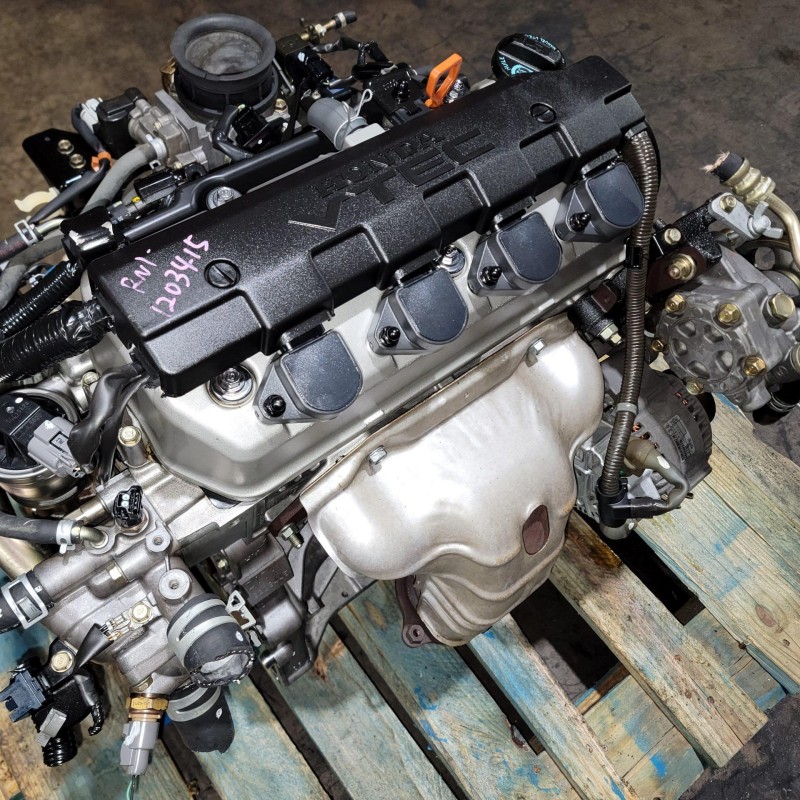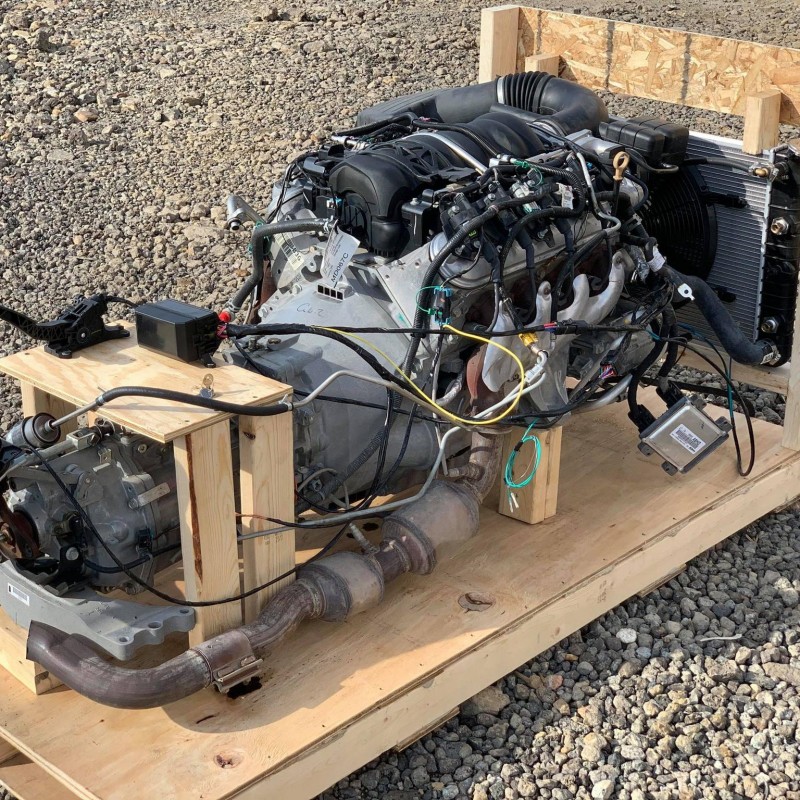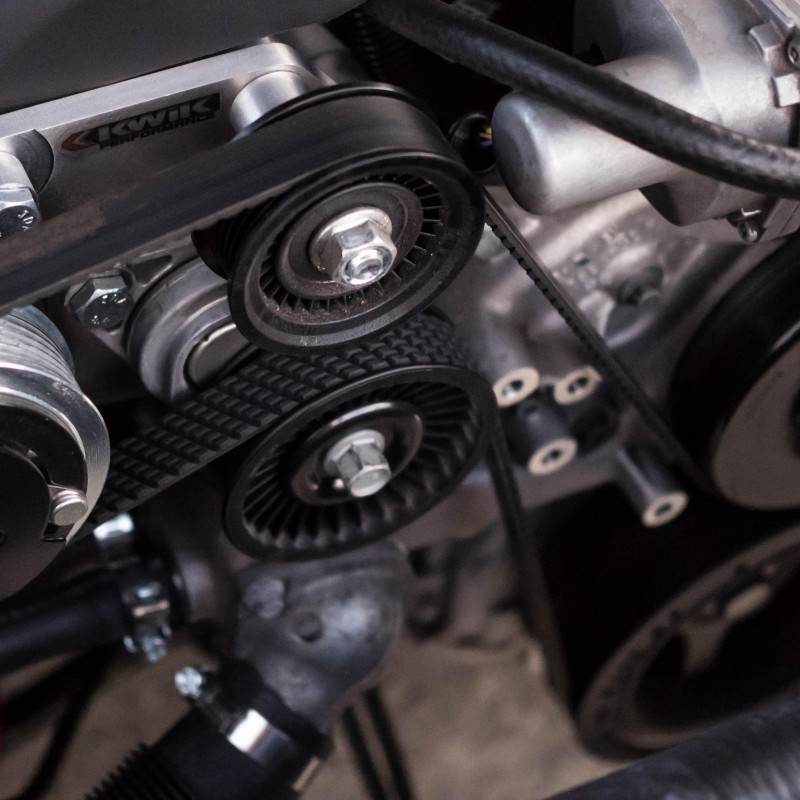Understanding the importance of a vehicle’s engine is crucial for every car owner. After all, the engine serves as the heart of your automobile, powering it and ensuring that it operates smoothly. However, issues can arise over time, leading many vehicle owners to wonder, “how do I know if my engine needs replacement?” Recognizing the signs of potential engine failure is vital for maintaining your vehicle’s safety, performance, and longevity. Ignoring warning signals can lead to more extensive damage and costly repairs. Throughout this article, we will explore the key indicators that suggest your engine might need replacement, discuss common causes of engine failure, and provide essential maintenance tips to help you extend your engine’s lifespan. Armed with knowledge, you can make informed decisions for your vehicle, ensuring that it remains reliable and efficient for years to come.

Understanding Engine Basics
Before diving into the signs that your engine may need replacement, it’s important to understand what an engine comprises and how it functions. Knowledge of the engine’s components will provide context for recognizing warning signs.
How an Engine Works
At its core, an internal combustion engine converts fuel into mechanical energy to power a vehicle. This process involves several key components working in harmony, including:
- Cylinders: The engine contains multiple cylinders where fuel-air mixtures ignite, leading to combustion that drives the pistons.
- Pistons: As the fuel ignites, it forces the pistons to move. This up-and-down motion turns the engine crankshaft.
- Crankshaft: The crankshaft converts the linear motion of the pistons into rotational motion, ultimately powering the vehicle’s wheels.
- Valves: Intake and exhaust valves control the entry of air and fuel and the exit of combustion gases from the cylinders.
- Spark Plugs: These components ignite the fuel-air mixture, initiating the combustion process within the cylinders.
Signs of Engine Trouble
As vehicles age, they may begin to exhibit various signs of engine trouble. Understanding what symptoms to look for can help assess the health of your engine.
- Unusual Noises: If you hear knocking, ticking, or grinding noises, these may indicate problems within the engine components.
- Warning Lights: Modern vehicles have warning lights on their dashboards, such as the check engine light, which signal that there may be an issue requiring immediate attention.
- Poor Performance: If your vehicle struggles to accelerate, experiences stalling, or shows diminished fuel efficiency, it’s essential to investigate the potential cause.
By knowing how an engine operates, you will be better equipped to recognize warning signs indicating that your engine may need replacement.
Recognizing Symptoms of Engine Failure
To identify whether you may need to replace your engine, consider several common symptoms that signal trouble. Paying attention to these symptoms can help catch problems early.
Excessive Smoke
One of the most noticeable indicators of engine trouble is excessive smoke. Smoke color can provide clues:
- Blue Smoke: Typically signifies that the engine is burning oil, potentially due to worn piston rings or valve seals. This situation is often remedied with a rebuild or replacement.
- White Smoke: This may indicate coolant leaking into the combustion chamber, which could lead to a blown head gasket. Further investigation is essential in this case.
- Black Smoke: An indication of an overly rich fuel mixture, black smoke suggests that the engine is burning more fuel than necessary, typically due to faulty sensors or injectors.
Overheating
If your engine consistently overheats, this could be a sign of severe issues, including:
- Cooling System Failure: Problems might include a malfunctioning thermostat, broken water pump, or leaking coolant.
- Internal Damage: Overheating can lead to warped cylinder heads or a cracked engine block, which may necessitate an expensive engine replacement.
Loss of Power
Experiencing a sudden loss of power while driving can be alarming. This drop in performance often arises from:
- Fuel System Issues: Clogged fuel filters or failing fuel pumps can prevent adequate fuel delivery, leading to power loss.
- Exhaust Restrictions: A blocked catalytic converter can cause back pressure, hindering engine performance.
Fluid Leaks
Leaking fluids beneath your vehicle can indicate engine trouble. The types of fluids include:
- Engine Oil: A significant loss of engine oil can lead to inadequate lubrication and severe wear on engine components.
- Coolant: If coolant leaks occur, engine overheating may follow, leading to critical damage.
If you discover any of these fluid leaks, addressing the issue promptly will help maintain engine health.
Common Causes of Engine Damage
Understanding the root causes of engine damage can help you take preventative measures and prepare for potential repairs or replacements. Here are some common culprits behind engine failure:

Poor Maintenance
Regular maintenance is crucial for engine longevity. Neglecting oil changes, air filter replacements, and coolant flushes can lead to engine wear and overheating.
- Oil Change Intervals: Failing to change the oil regularly can result in sludge buildup, which affects lubrication and leads to excess friction.
- Air Filter Maintenance: An obstructed air filter can reduce airflow to the engine, leading to incomplete combustion and reduced efficiency.
Overheating
Overheating is one of the most serious threats to engine health. Causes may include:
- Coolant Leaks: A drop in coolant levels can cause rapid overheating.
- Faulty Thermostat: A faulty thermostat can fail to regulate coolant flow, leading to overheating.
- Clogged Radiators: Dirt or debris can obstruct radiator airflow, impacting cooling efficiency.
Regularly inspecting and maintaining your cooling system can help prevent catastrophic engine failure.
Timing Belt or Chain Failure
The timing belt or chain synchronizes the rotation of the engine’s internal components. If it fails, severe engine damage can occur:
- Engine Misalignment: A snapped timing belt can cause the pistons to collide with the valves, damaging both and often necessitating an expensive engine rebuild or replacement.
- Unusual Noises: If you hear unusual rattling or whirring noises from the engine, it could indicate that the timing mechanism is faulty and requires immediate attention.
Oil Sludge Buildup
Oil sludge is a thick, gunky substance that can form when oil breaks down under heat and pressure. Engine problems caused by oil sludge include:
- Poor Lubrication: Oil sludge can clog oil passages, leading to inadequate lubrication for critical components.
- Increased Wear: The presence of sludge can speed up wear and tear on engine parts, ultimately compromising engine health.
Regular oil changes and using quality oil can help combat sludge buildup.
Assessing Engine Condition
To determine how do I know if my engine needs replacement, it’s essential to assess its overall condition. Conducting a thorough evaluation will help inform your decision.
Diagnostic Tools
Utilizing diagnostic tools can provide clarity about engine health. Consider the following options:
- OBD-II Scanner: This device connects to your vehicle’s onboard diagnostic system and retrieves trouble codes that indicate underlying issues.
- Compression Test: A compression test assesses the health of the cylinders and can identify problems like worn piston rings or valves.
- Oil Analysis: Sending an oil sample to a lab can reveal metal particles or contaminants, providing insight on engine wear.
Professional Inspection
If you’re unsure about the condition of your engine, seeking a professional inspection is a wise decision.
- Certified Mechanics: Mechanics can provide an objective analysis of your engine’s condition and suggest necessary repairs or replacements.
- Detailed Reports: After inspection, mechanics often offer comprehensive reports indicating the overall health and vital areas requiring attention.
The Costs of Engine Replacement
Understanding the financial implications of engine replacement is necessary before making this significant decision. Many factors influence the costs involved:
Engine Types
The cost will depend substantially on the type of engine your vehicle requires.
- New Engines: Opting for a new engine usually comes with the highest price tag, often ranging from $4,000 to $10,000 or more, depending on the make and model of the vehicle.
- Rebuilt Engines: Rebuilt engines offer a cost-effective alternative, averaging between $2,500 and $4,500. A rebuilt engine includes many new components, providing a level of reliability.
- Used Engines: Purchasing a used engine may cost between $1,500 to $3,000, but it carries inherent risks regarding reliability.
Labor Costs
Labor costs contribute significantly to the overall expense. The complexity of the replacement process can vary:
- Job Complexity: More advanced engines typically require more labor time and expertise, increasing costs.
- Location: Labor rates differ based on geographic location and market conditions.
Additional Repairs
Keep in mind that additional repairs may accompany engine replacement. If there are supporting systems, such as the cooling system or fuel delivery system, that also require repairs, the total costs will increase.
Warranty Considerations
When considering engine replacement, explore available warranty options. Many rebuilt or new engines come with warranties that provide extra peace of mind for future repairs.
Maintaining Engine Health
Preventative maintenance is essential for prolonging engine life and avoiding costly replacements. Following a regular maintenance schedule can help keep your engine healthy.
Schedule Regular Oil Changes
Regular oil changes should form the basis of your vehicle maintenance routine. Always adhere to manufacturer recommendations for oil change intervals, which typically range between every 3,000 to 7,500 miles, depending on the oil type and vehicle model.
Monitor Engine Performance
Keep track of your engine’s performance through basic assessments. Notice any changes in sound, acceleration, or behavior, as these could indicate developing issues.
Conduct Periodic Inspections
Regularly inspect belts, hoses, and filters to maintain optimal performance. Replace worn components promptly to prevent further damage.
Use Quality Fuel
Using high-quality fuel can positively affect your engine’s overall health. Premium fuels may include detergents and additives that help keep the engine clean and functioning efficiently.
Address Issues Promptly
When faced with any warning signs, such as unusual noises or warning lights, addressing these issues immediately can prevent further damage and save money in the long run.

Conclusion
In conclusion, understanding how do I know if my engine needs replacement is essential for every vehicle owner. Through the careful recognition of symptoms and periodic evaluations, you will be better equipped to make informed decisions regarding engine health. If you encounter excessive smoke, consistent overheating, or unusual noises, don’t hesitate to seek professional assistance.
Additionally, regular maintenance and attention to detail will extend the lifespan of your engine, reducing the risk of costly replacements. By understanding engine components and maintaining vehicle performance, you can enjoy the safety and reliability of your vehicle for years to come. Remember, proactive care is the key to keeping your engine running smoothly, saving you money, and enhancing your driving experience.